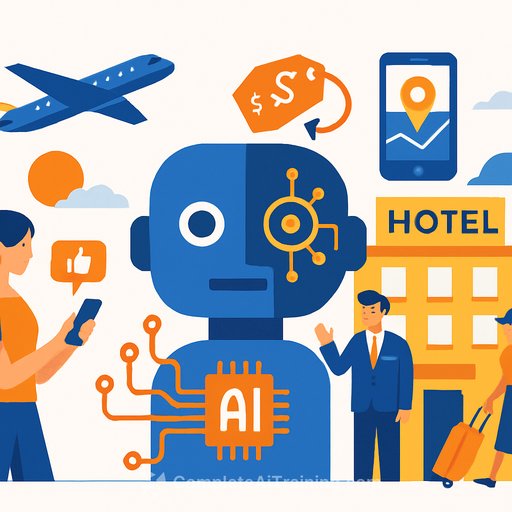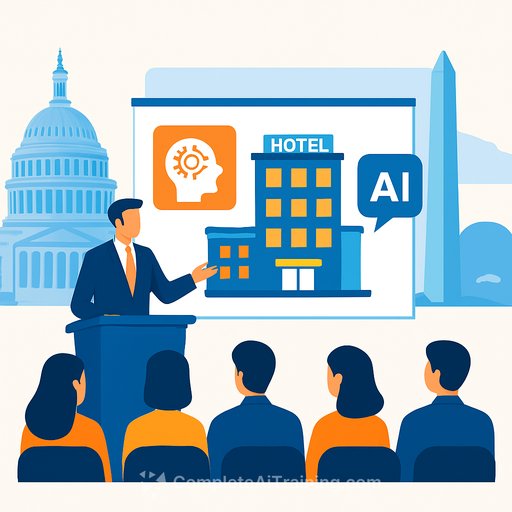Surging Adaptation of AI in Hospitality and Tourism: A Must Read
Introduction
The hospitality and tourism industries are experiencing significant growth, driven largely by advances in Artificial Intelligence (AI). Improvements in real-time customer engagement and dynamic pricing strategies are reshaping how businesses operate. The aviation sector, in particular, is benefiting from AI by optimizing revenue management and enhancing personalized guest experiences.
AI Enhances Real-Time Customer Engagement
AI-powered chatbots and virtual assistants now offer instant, personalized responses to guest inquiries. This not only improves customer satisfaction but also boosts operational efficiency. These tools handle a variety of tasks, including booking reservations and providing local recommendations, ensuring guests receive timely and relevant information.
Additionally, AI recommendation engines analyze guest preferences to suggest dining options or activity itineraries. This personalization fosters brand loyalty and encourages repeat visits.
Dynamic Pricing Strategies Optimize Revenue
Dynamic pricing uses AI to adjust rates in real-time based on demand, competition, and market conditions. By analyzing historical data, local events, and weather patterns, AI predicts demand fluctuations and adjusts prices accordingly. This enables businesses to maximize revenue during peak times and offer discounts during slower periods, balancing occupancy and profitability.
Global Adoption and Market Growth
AI adoption in hospitality and tourism is spreading worldwide. In the United States, major hotel chains and travel agencies are deploying AI to streamline operations and improve guest interactions. The United Kingdom is leveraging AI for personalized travel experiences and pricing optimization.
India uses AI to manage large volumes of guest data and personalize services, while Japan focuses on enhancing visitor experiences and operational efficiency. The United Arab Emirates integrates AI into its luxury tourism sector to offer high-end, customized services to international visitors.
Market Trends and Future Outlook
The global AI market in hospitality and tourism is on an upward trend, with projections showing substantial growth by 2030. This is driven by demand for personalized services, operational efficiency, and data-driven decision-making. As AI technology advances, new applications will continue to emerge, meeting changing traveler and industry needs.
Future Aspects of AI in Hospitality and Tourism
Enhanced Personalization
Future AI tools will predict guest preferences even before arrival and customize itineraries based on past behavior, making each guest feel uniquely valued.
Improved Operational Efficiency
AI will further automate customer service, booking management, inventory control, and staffing, reducing costs and increasing accuracy.
Predictive Analytics for Demand Forecasting
By analyzing large datasets, AI will help anticipate peak seasons and adjust pricing and staffing accordingly.
Voice and Gesture-Based Interfaces
Voice assistants and gesture control will let guests manage room settings or request services seamlessly, creating more interactive stays.
AI-Powered Virtual Travel Assistants
Travelers will benefit from virtual assistants that provide instant answers, personalized suggestions, and support during travel disruptions.
Automated Check-In and Concierge Services
Automation will simplify check-ins and provide virtual concierge support, helping guests arrange transportation and activities efficiently.
Global Expansion of AI Integration
Emerging markets will adopt AI to stay competitive, creating a more unified global hospitality landscape with advanced services accessible everywhere.
AI-Enhanced Marketing Strategies
AI tools will enable precise audience targeting by analyzing consumer behavior, resulting in more effective marketing campaigns and offers.
In Closing
AI is increasingly important in hospitality and tourism, focusing on customer interaction and operational management. Tools for engagement and dynamic pricing are enhancing guest satisfaction and stabilizing revenue streams. As AI use grows worldwide, it will continue to influence the future of these industries.
For hospitality professionals interested in learning more about AI applications and training, explore Complete AI Training’s courses tailored for your industry.
Your membership also unlocks:






